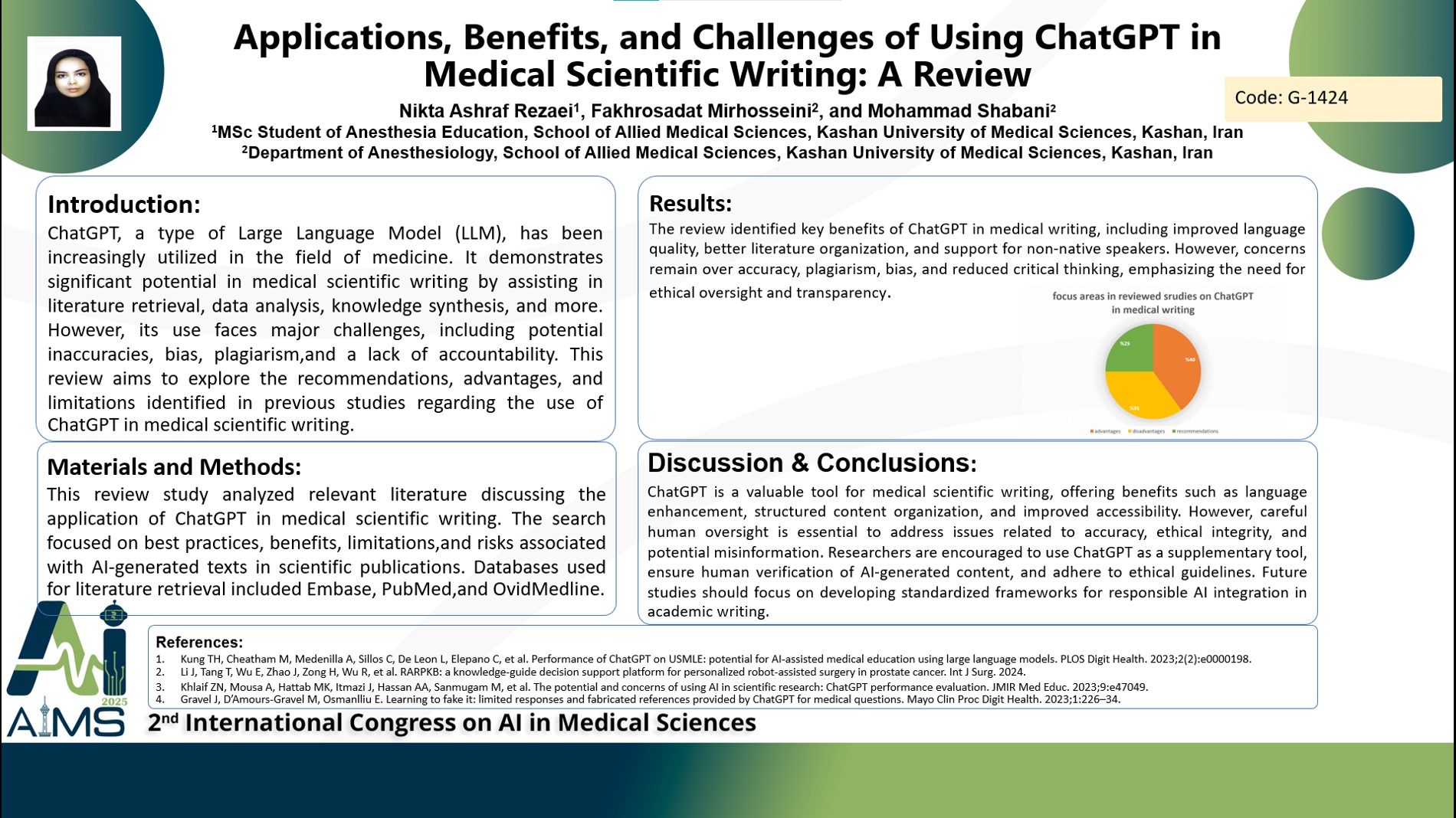Applications, Benefits, and Challenges of Using ChatGPT in Medical Scientific Writing: A Review
Code: G-1424
Authors: Nikta Ashraf Rezaei * ℗, فخرالسادات میرحسینی, محمد شبانی
Schedule: Not Scheduled!
Tag: Intelligent Virtual Assistant
Download: Download Poster
Abstract:
Abstract
Background and aims: ChatGPT is a type of Large Language Model (LLM) which has since been extensively utilized in the field of medicine. ChatGPT demonstrates significant potential in medical paper writing, aiding in literature retrieval, data analysis, knowledge synthesis, and various other aspects. However, the use of these tools in medical scientific writing faces significant challenges, including the potential for inaccuracy, bias, plagiarism, and a lack of accountability.This review study aims to examine the recommendations, advantages, and limitations highlighted by previous studies regarding the use of ChatGPT in medical scientific writing. Method: This study conducted a review of relevant literature on the application of ChatGPT in medical scientific writing. The review focused on studies discussing best practices, benefits, limitations, and potential risks associated with AI-generated texts in scientific publications. For the literature search, reputable databases, including Embase, PubMed, and OvidMedline, were utilized Results:The review highlights ChatGPT’s benefits in medical writing, including improving language quality, aiding in literature organization, reducing editing costs, and assisting non-native speakers. Effective use requires human oversight, ethical compliance, strategic application, and proper prompt design. However, concerns include reduced critical thinking, accuracy issues, plagiarism risks, bias, misinformation, and the need for transparency in AI usage. Conclusion: ChatGPT is a valuable tool for medical scientific writing, offering benefits such as language enhancement, structured content organization, and improved accessibility. However, its use requires careful oversight to address concerns related to accuracy, ethical integrity, and potential misinformation. To maximize its benefits, researchers should use ChatGPT strategically as a supplementary tool, ensure human verification of AI-generated content, and adhere to ethical guidelines. Future research should focus on developing standardized frameworks for responsible AI integration in academic writing.
Keywords
Artificial Intelligence, ChatGPT, Large Language Models
